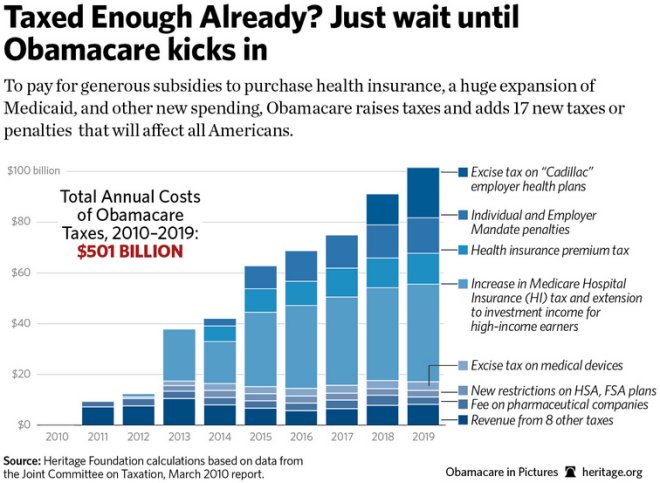New Costs From Health Law Snarl Union Contract Talks
< < Go Back
Workers and Employers Tussle Over Who Should Pay for New Costs Tied to Affordable Care Act.
Disputes between unions and employers over paying for new costs associated with the Affordable Care Act are roiling labor talks nationwide.
Unions and employers are tussling over who will pick up the tab for new mandates, such as coverage for dependent children to age 26, as well as future costs, such as a tax on premium health plans starting in 2018. The question is poised to become a significant point of tension as tens of thousands of labor contracts covering millions of workers expire in the next several years, with ACA-related cost increases ranging from 5% to 12.5% in current talks.
In Philadelphia, disagreement over how much workers should contribute to such health-plan cost increases has stalled talks between the region’s transit system and its main union representing 5,000 workers as they try to renegotiate a contract that expired in March.
Roughly 2,000 housekeepers, waiters and others at nine of 10 downtown Las Vegas casinos voted this month to go on strike June 1 if they don’t reach agreements on a series of issues, the thorniest of which involve new ACA-related cost increases, according to the union.
Flight attendants at Alaska Airlines voted down a tentative contract agreement with management in February, in part because it didn’t provide enough protection against a possible surge in ACA-related costs, union members said. They are still without a new contract.
Labor experts on both sides say the law doesn’t take into account that health benefits have been negotiated by employers and unions over decades, and that rewriting plans to meet new requirements can affect wages and other labor terms.
“It’s been a challenge for even some of the stronger unions to maintain the quality health plans that they have offered over the years,” said Daniel Murphy, an attorney in New York who represents employers in labor talks.
Among the earliest supporters of the health-care law, unions have unsuccessfully tried to win concessions from the Obama administration on some issues now involved in the labor talks.
One pressure point is the higher costs of new mandates, especially the requirement that health plans expand coverage for dependents. For Unite Here, adding that coverage for 14,000 dependents raised costs in the health-care fund run by the union’s Las Vegas local by $26 million since 2011, said union spokeswoman Bethany Khan.
The union plan covers 55,000 workers and 120,000 people in total. Casinos on the Strip have agreed to pay more to meet the higher health-care costs, according to contract summaries. Unite Here President D. Taylor called the rising costs tied to the health law the biggest hurdle to reaching settlements in Las Vegas.
Uncertainty about future costs is also hampering negotiations. One of the biggest looming unknowns is the so-called Cadillac tax on high-cost health plans scheduled to take effect in 2018. The provision imposes a 40% tax on the annual cost of health care above $10,200 for individual coverage and $27,500 for family coverage.
The regional transit system in Philadelphia, Septa, estimates the tax will boost its health-care costs by $15 million a year, or 12.5% of the $120 million it currently spends each year on health coverage. The transit system is already incurring several million dollars in added costs from other provisions, said Richard Burnfield, Septa’s chief financial officer. “How do you deal with that?” he said.
Transport Workers Union Local 234, Septa’s biggest union, has rejected a proposal that its members contribute an additional 1% of pay to help cover new ACA-related costs, said Willie Brown, president of the union, which represents 5,000 bus drivers, train operators and others.
Jim Ray, a lawyer who represents the Laborers International Union of North America in benefits negotiations, said these provisions have increased construction-industry health plans’ costs by 5% to 10%, and already resulted in lower wages for some laborers. He said employers are frequently seeking contract language to cap their own liability for future cost increases from the law.
“When we first supported the calls for health-care reform, we thought it was going to bring costs down,” he said.
More From The Wall Street Journal (subscription required):




